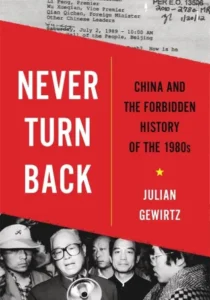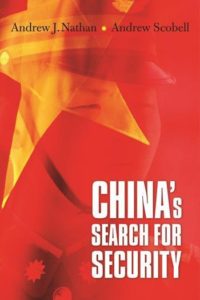 On a visit to China in the summer of 1988, I encountered a widespread sense of drift and despair, notes Columbia University’s Andrew J. Nathan. The official inflation rate at 18.5 percent, and the actual rate was probably higher. State statistics said that 21 percent of urban workers had suffered a decline in living standards. In big cities, residents needed to routinely pay bribes if they wanted phone lines, electricity service, mail deliveries, or medical attention. Intellectuals were criticizing China’s political leaders, its political system, and even its national culture and national character. “Nineteen-eighty-eight ushered in a season of discontent that is perhaps unique in China’s post-revolutionary history,” I wrote in an article published later that year.
On a visit to China in the summer of 1988, I encountered a widespread sense of drift and despair, notes Columbia University’s Andrew J. Nathan. The official inflation rate at 18.5 percent, and the actual rate was probably higher. State statistics said that 21 percent of urban workers had suffered a decline in living standards. In big cities, residents needed to routinely pay bribes if they wanted phone lines, electricity service, mail deliveries, or medical attention. Intellectuals were criticizing China’s political leaders, its political system, and even its national culture and national character. “Nineteen-eighty-eight ushered in a season of discontent that is perhaps unique in China’s post-revolutionary history,” I wrote in an article published later that year.
Such a dark mood was surprising at the end of a decade of what the official propaganda apparatus called “reform and opening”—Chinese leader Deng Xiaoping’s ambitious campaign to restructure China’s economic system and open the country to global markets after the stagnation and autarky of the Mao Zedong years. Not an expert in economics, Deng relied on China’s premier, Zhao Ziyang, to figure out how to reform the economy, he writes for the Sept/Oct issue of Foreign Affairs in a review of Never Turn Back: China and the Forbidden History of the 1980s by Julian Gewirtz.
![]()
 But the notion that Zhao was some kind of prospective democrat are misplaced, Nathan suggests.
But the notion that Zhao was some kind of prospective democrat are misplaced, Nathan suggests.
As Gewirtz writes, Zhao’s priorities were “to increase transparency, strengthen the ability of other political parties and social groups, from labor unions to women’s organizations, to represent their members, raise the number of appointments made through elections, protect citizens’ rights, and entrench the separation of party and state.”
If these were Zhao’s ideas, the possible future for China that was lost when Zhao was purged would not have been as democratic as Gewirtz seems to imagine, adds Nathan, a former National Endowment for Democracy (NED) board member. Had Zhao defeated Deng and realized his own political vision, China would still be a one-party state, facing the impossible task of reconciling popular political freedom with a monopoly on political power. RTWT







